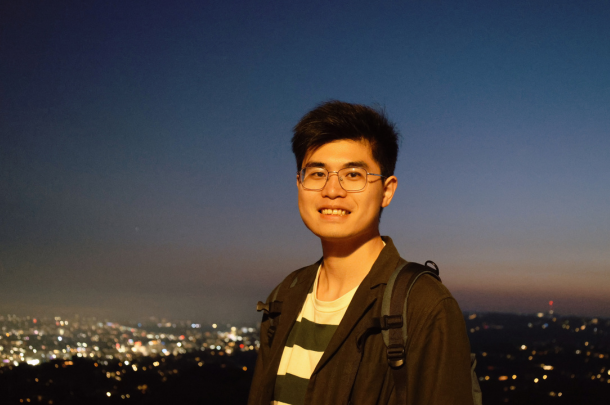Making magic with materials to enhance human well-being
Meet Liwei Wang
Kaitlyn Landram
Oct 24, 2024

In Liwei Wang’s lab you will find physical intelligence systems, smart materials, and most importantly an environment that values mentorship and friendship.
The assistant professor joined Carnegie Mellon University’s Department of Mechanical Engineering at the beginning of the fall ‘24 semester. His research aims to establish computational design frameworks for metamaterials and robotic materials, exploring the synergy between chip-based artificial intelligence and chip-free physical intelligence. His lab is working on applications that can enhance human well-being and extend human capabilities such as mechanical protective cloaks and minimally invasive surgery.
“I use materials and structures to create what we typically think of as magic,” explained Wang.
As a kid, Wang was captivated by Harry Potter’s wizarding world and, like many of us, spent years waiting for an owl to deliver his own acceptance letter to Hogwarts.
“To me, magic in the world represents the ability to reprogram the nature of objects, going beyond human intuition to give them life and intelligence. When I began my research I became fascinated with the idea of creating magic in engineering design to enhance human well-being.”
During his PhD, Wang developed a mechanical cloak -an ode to Harry Potter’s invisibility cloak, shape morphing Kirigami and soft robotic arms - inspired by the magic of transfiguration.
Wang was drawn to Carnegie Mellon because of its interdisciplinary nature.
To me, magic in the world represents the ability to reprogram the nature of objects, going beyond human intuition to give them life and intelligence. When I began my research I became fascinated with the idea of creating magic in engineering design to enhance human well-being.
Liwei Wang, Assistant Professor, Mechanical Engineering

“The mechanical engineering department’s work in Softbotics exemplifies this,” he said. “MechE researchers have very new ideas and they collaborate with materials science and computer science to bring them to life. This is very important to me because I believe that if we want to do something impactful, we have to work together.”
Wang is passionate about the direction of his research but wants researchers in his lab to see him as a person too - one who also loves philosophy, music, and reading about art and history.
“I hope to learn as much from my students as they do from me. I want to cultivate a culture where beyond a mentor, I can be a friend.”
From the time he was a toddler, Wang enjoyed teaching new things to those closest to him.
“My grandfather would pretend not to understand something to give me the chance to teach it to him,” Wang remembered. “During those times I would tell him to call me Professor Wang.”
His grandfather was one of his biggest inspirations, always sharing books with him to instill curiosity and passion for sharing knowledge.
Liwei Wang earned his bachelor’s degree and Ph.D. in mechanical engineering from Shanghai Jiao Tong University in China.